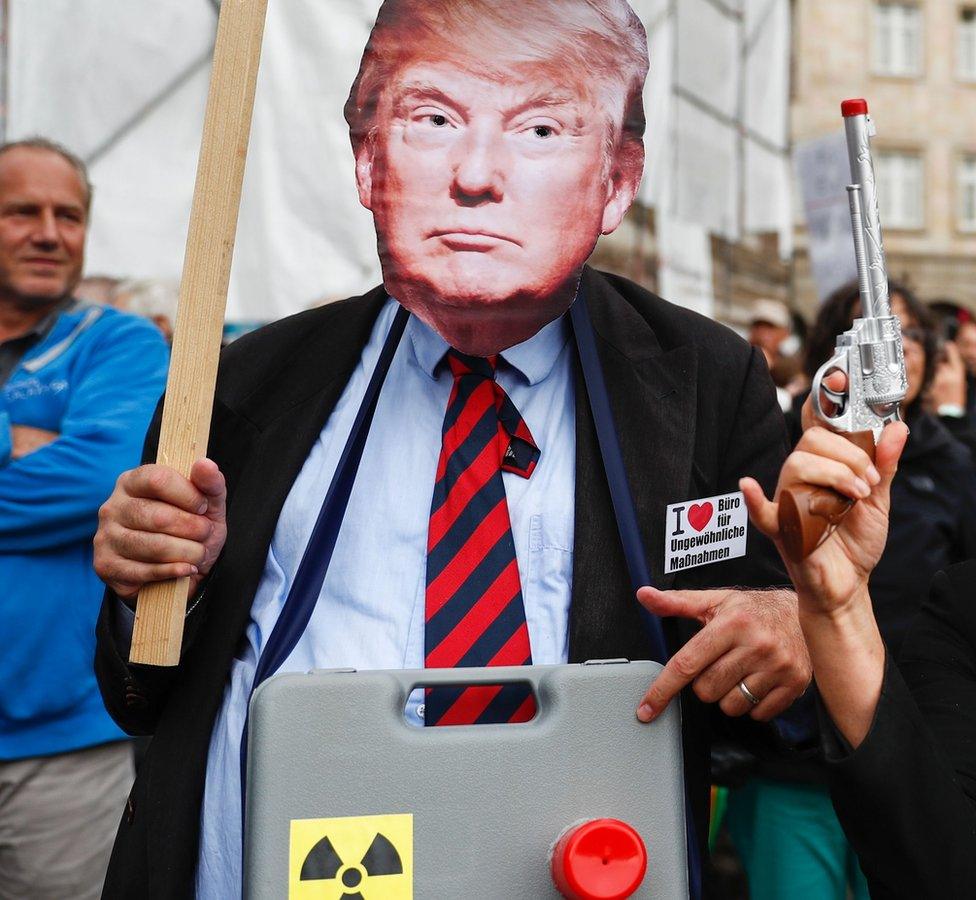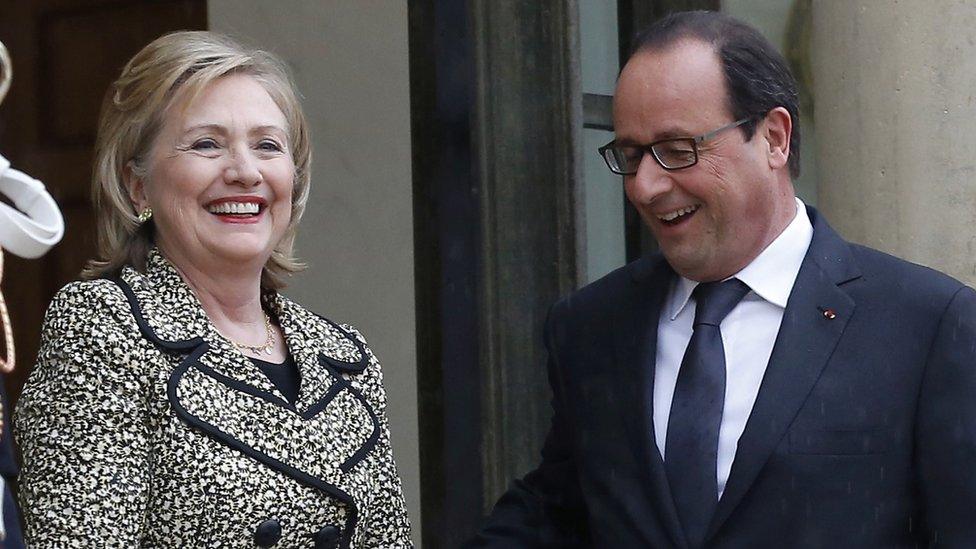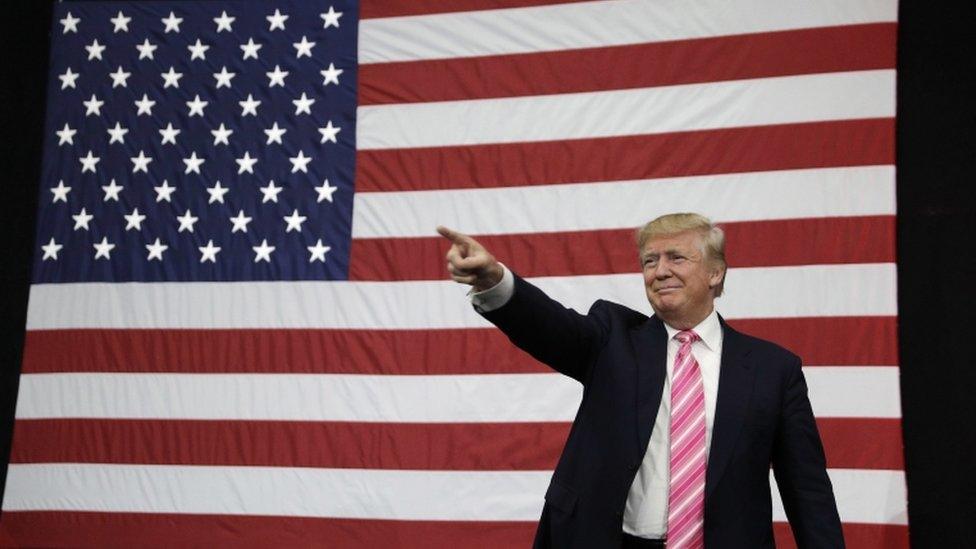US election 2016: Presidential campaign alarms Europeans
- Published

Many Europeans fear what would happen to Nato with Donald Trump as president
Europe has always taken a close interest in US presidential politics. Any reset of the transatlantic relationship matters. But this is a year unlike any other.
Europeans have looked on with a mixture of fascination and horror as the election campaign has descended into the gutter.
The rise of Donald Trump and his anti-establishment message has obvious parallels in many European countries. The broad themes of anti-globalisation, anger at mainstream politics and hostility towards immigration are being debated with vigour across the EU and beyond.
Most Europeans would argue that Mr Trump appears to have taken things down to a new level.
So it is hardly surprising that opinion polls suggest that if Europeans had a vote in this election Hillary Clinton would win by a landslide.
But it's not just about the tone of the campaign. Substance matters, too.
Jenny Hill goes to Bamberg to find out how Germans view the US presidential race
Unpredictable
In Eastern Europe, in particular, Mr Trump's flirtation with Moscow, his praise of Russian President Vladimir Putin, and his disparaging remarks about the Nato alliance have caused serious concern.
A recurring theme of his campaign has been that America's friends abroad take the US for granted and expect it to pay all the bills. Under his leadership, the US should and would be prepared to walk away from existing alliances.
Mr Trump has also taken aim at the European Union, predicting that it will "break up", and supporting the Brexit campaign in the UK.
But it is the suggestion that he might be prepared to ignore Nato treaty obligations, and the overall unpredictability of his foreign policy pronouncements, that has really ruffled feathers.

Hillary Clinton enjoys good relations with many European leaders
Hillary Clinton by contrast is a known quantity. A former secretary of state and First Lady, she is steeped in the tradition that allies in Europe form an important part of the American view of the world.
She would continue to press Nato allies in Europe to contribute more to joint defence; and her adversarial hawkish relationship with Russian leaders would pose challenges of a different kind.
She may also seek to reinvigorate President Obama's much-heralded "pivot to Asia" - a policy the then-secretary of state did much to develop and nurture.
But there would be far more sense of continuity in relations with Europe, and for that Europeans would be grateful. In the EU, they have enough crises to deal with already.
Trading blows
One priority of the Obama administration that could shift quite dramatically, though, is its commitment to free trade.

Improving ties with EU is not among Mr Trump's priorities
Donald Trump talks of walls and barriers and preaches protectionism. Hillary Clinton - squeezed between Mr Trump on one side and her former Democratic rival Bernie Sanders on the other - has also attacked the free-trade agenda.
For Europe this matters. Negotiations on the proposed transatlantic trade and investment partnership (TTIP) have run into the sand. Popular opposition in Europe is also deep-rooted and well organised.
So the trade agenda between the EU and whoever becomes the next US president looks more unpredictable than it has been in years.
European governments are operating on the assumption that it is Mrs Clinton who will win. But in this year of surprises no-one is taking anything for granted.
A Trump victory would be the biggest challenge to the transatlantic alliance since the fall of the Soviet Union.
But even if he loses, Europe will be watching closely to see what impact his extraordinary candidacy may have on US politics, and on Washington's relations with the wider world.